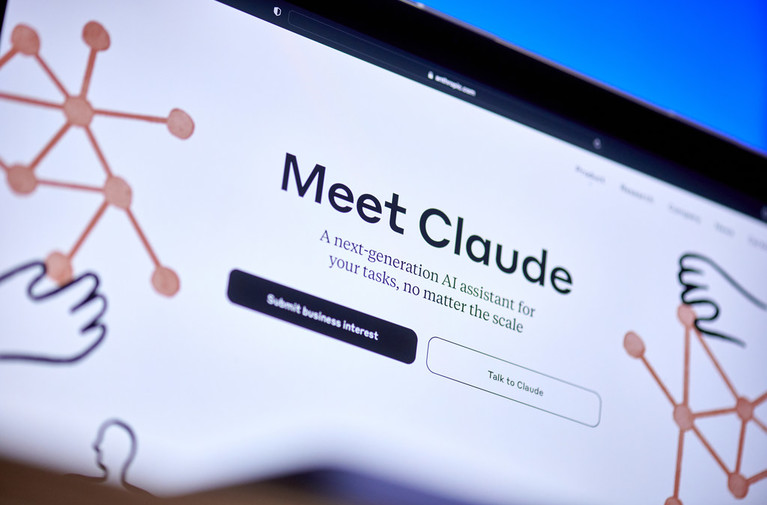In a major development for the ongoing clash between artificial intelligence companies and content creators, Anthropic has agreed to pay at least $1.5 billion to settle a class-action lawsuit brought by book authors. The suit accused the AI startup of illegally downloading millions of pirated books to build its massive training library for models like its chatbot Claude. Filed on Friday in U.S. District Court in San Francisco, the proposed deal—pending judge approval—marks the largest publicly reported copyright recovery in U.S. history, according to the plaintiffs’ lawyers. It comes amid a surge of similar cases testing the boundaries of copyright law in the AI era, where tech firms rely on vast datasets to power generative tools.
The lawsuit originated in 2024 when thriller novelist Andrea Bartz, nonfiction writers Charles Graeber, and Kirk Wallace Johnson filed claims on behalf of a class of authors. They alleged that Anthropic, founded by former OpenAI executives in 2021 and backed by Amazon and Google, unlawfully accessed over seven million digitized books from shadow libraries like Library Genesis (LibGen) and Pirate Library Mirror. These sites, often called “pirate” repositories, host unauthorized copies of copyrighted works. The authors argued that Anthropic’s actions constituted large-scale infringement, using the materials to train Claude without permission or compensation. In June 2025, U.S. District Judge William Alsup ruled that while training AI on copyrighted books could qualify as “fair use” under U.S. law—because the output was “exceedingly transformative”—the company violated copyrights by downloading and storing the pirated copies in a central library, even if it later decided not to use them all for training. Alsup’s decision set the stage for a December trial on damages, where statutory penalties could have reached up to $150,000 per work, potentially totaling hundreds of billions of dollars.
The settlement, detailed in a court filing, provides for roughly $3,000 per affected work, covering an estimated 500,000 books after accounting for duplicates and non-copyrighted materials. Anthropic will make four payments into a fund, starting with $300 million within five business days of approval, and has agreed to destroy the pirated datasets. The amount could rise if more works are identified, with additional $3,000 payments per book. Notably, the deal only releases claims related to conduct up to August 25, 2025, leaving room for future lawsuits over ongoing or new uses. A hearing for preliminary approval is scheduled for Monday, September 8, before Judge Alsup, with a final list of covered works due by October 10.
“This settlement sends a powerful message to AI companies and creators alike that taking copyrighted works from these pirate websites is wrong,” said Justin Nelson, co-lead counsel for the plaintiffs from Susman Godfrey LLP, in a statement to CNBC. “It is the first of its kind in the AI era.” Anthropic’s deputy general counsel, Aparna Sridhar, emphasized the company’s focus on ethical development: “Today’s settlement, if approved, will resolve the plaintiffs’ remaining legacy claims. We remain committed to developing safe AI systems that help people and organizations extend their capabilities, advance scientific discovery, and solve complex problems.” Maria Pallante, president and CEO of the Association of American Publishers, called it “a vital step in acknowledging that AI companies cannot simply steal authors’ creative work to build their AI,” noting the group’s involvement in supporting the deal.
This case is part of a broader wave of over 40 lawsuits against AI firms, including OpenAI, Microsoft, and Meta, over training data practices. It follows high-profile suits from news outlets and artists, with courts still debating fair use in AI contexts. A recent ruling in a Meta case found unauthorized use of works for training unlawful in many instances. The Authors Guild had warned members of potential damages starting at $750 per work, but the settlement’s higher payout reflects a negotiated resolution avoiding trial risks.
The impact of this settlement could be far-reaching. For Anthropic, valued at $183 billion after a $13 billion funding round announced this week, the payout—while significant—avoids potentially crippling damages that experts like William Long of Wolters Kluwer say could have reached “multiple billions” and threatened the company’s survival. For authors and publishers, it provides substantial compensation and sets a precedent for licensing deals or revenue-sharing models in AI data usage. Legal analysts predict it may accelerate negotiations in other cases, fostering a “marketplace for data” as suggested by AI legal expert Cecilia Ziniti of GC AI. Broader implications include stricter sourcing of training materials, potentially slowing AI development costs but protecting creative industries, which lose an estimated $100 billion annually to piracy.
If approved, this agreement underscores a pivotal moment: AI innovation must balance with intellectual property rights. As the tech sector races ahead, settlements like this could redefine how companies build the next generation of tools, ensuring creators get their due while the industry evolves.
